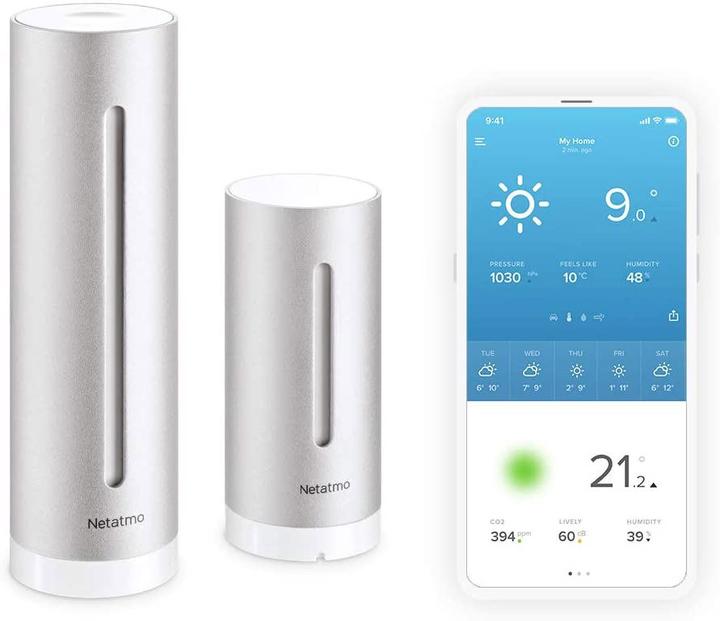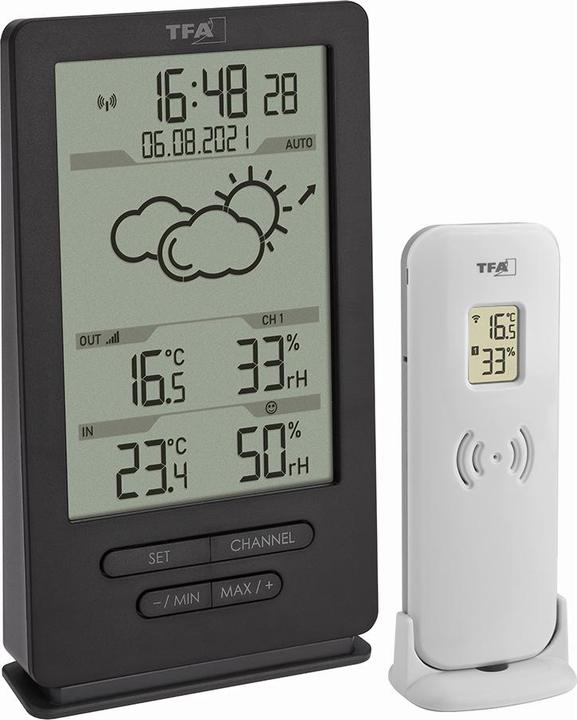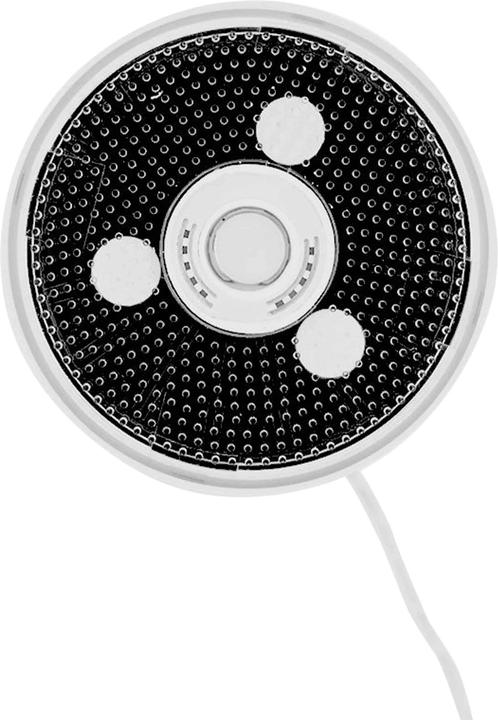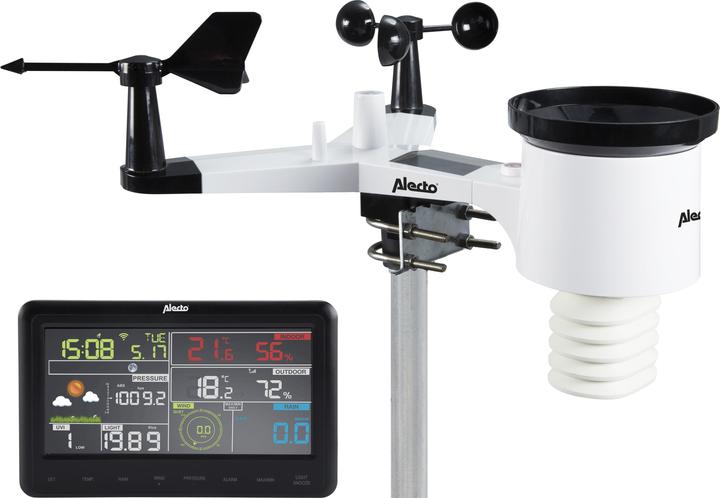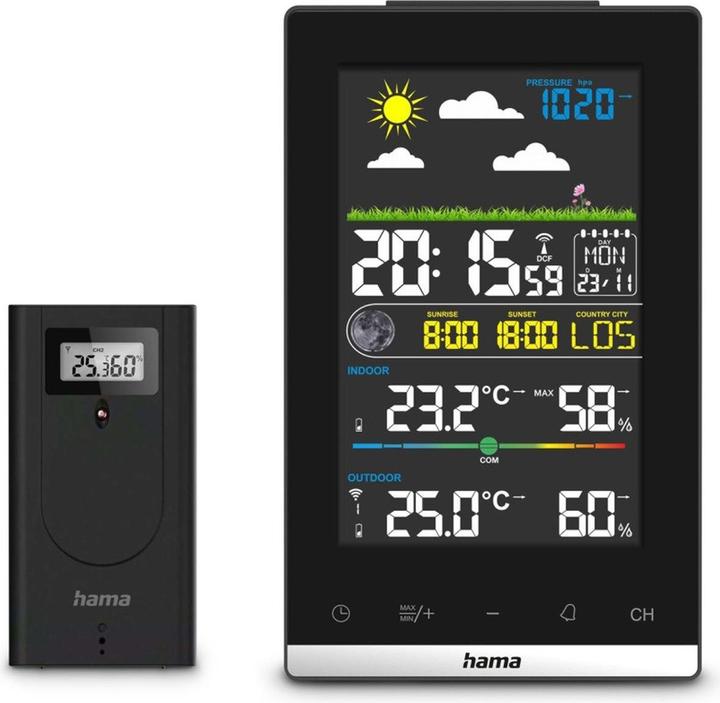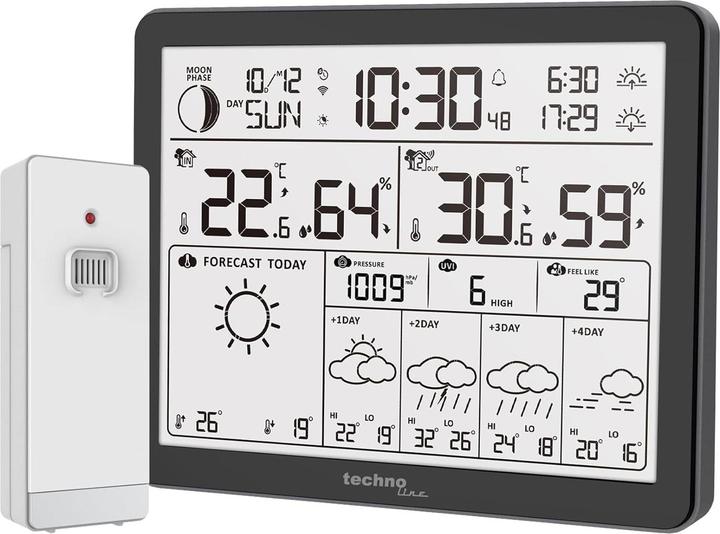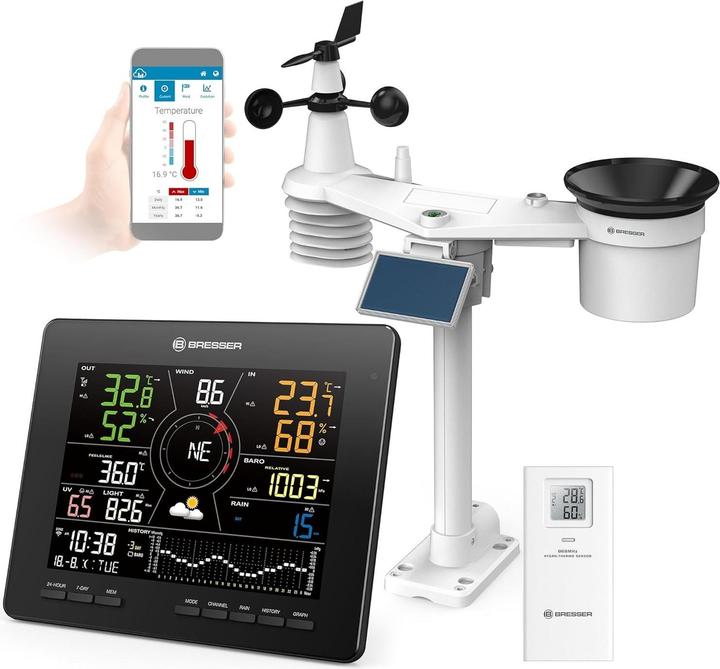
Too Many Weather Stations? Here's How to Choose the Right One
Discover five key factors to consider when selecting the perfect weather station for your needs.
Last updated 1 month ago. Automatically generated content.
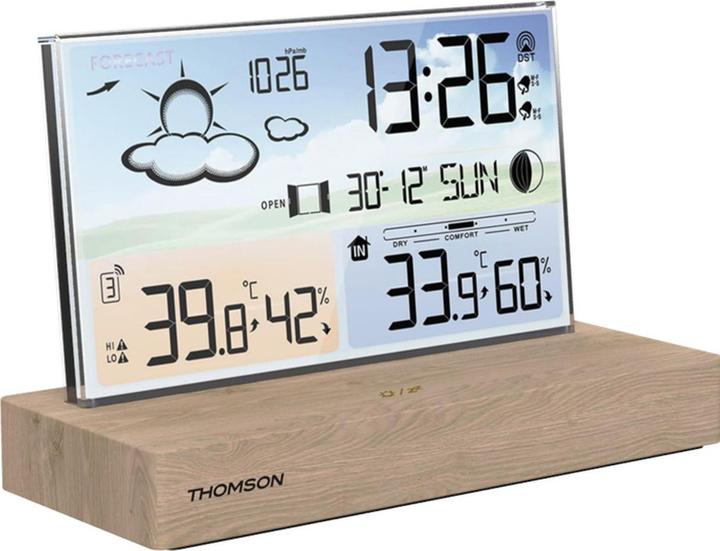

Select options and limit the number of products
Weather station type determines the method by which weather data is collected and displayed, directly affecting functionality and ease of use. Selecting the right type ensures accurate data monitoring and fits specific needs, such as connectivity or simplicity.
Popular options (you can select more than one)
Digital weather station
Typical price
29.– to 80.–Offers electronic displays with digital sensors for precise readings.
Ideal for tech-savvy users seeking detailed and accurate weather data with minimal maintenance.
Bestseller
Radio weather station
Typical price
35.– to 94.–Receives weather data via radio signals from external sources.
Suitable for users in areas with reliable radio signal coverage, providing real-time updates without internet reliance.
Bestseller
Analog weather station
Typical price
45.– to 76.–Utilizes mechanical components for weather measurement.
Perfect for those who appreciate traditional design and straightforward functionality without the need for power sources.
Bestseller
WLAN weather station
Typical price
120.– to 270.–Connects to Wi-Fi networks to upload and access weather data online.
Excellent choice for users who want remote monitoring and integration with smart home systems.
Bestseller
Sensor measuring functions in weather stations determine the range of environmental conditions that can be accurately monitored, affecting the station's versatility and usefulness. Choosing the right sensor functions enhances the accuracy and comprehensiveness of weather data, crucial for applications like farming, outdoor planning, and scientific research.
Popular options (you can select more than one)
Temperature
Typical price
33.– to 94.–Measures the ambient temperature in the environment with precision.
Essential for monitoring weather changes, aiding in planning activities and ensuring comfort and safety.
Bestseller
Atmospheric humidity
Typical price
33.– to 94.–Records the moisture level in the air, providing real-time humidity data.
Important for predicting weather patterns such as rain or fog, and helpful for individuals with health concerns like asthma.
Bestseller
Air pressure
Typical price
45.– to 150.–Tracks the atmospheric pressure, which is vital for weather forecasting.
Helps in predicting changes in weather, such as approaching storms or clear skies, enhancing preparedness.
Bestseller
Wind speed
Typical price
130.– to 320.–Monitors the speed and direction of the wind accurately.
Useful for activities like sailing, flying drones, and outdoor events, ensuring safety and efficiency.
Bestseller
Precipitation gauge
Typical price
110.– to 300.–Measures the amount of rainfall or snowfall over a period.
Crucial for assessing water availability for agriculture, flood risk management, and environmental studies.
Bestseller
Additional functions enhance the capabilities of weather stations, providing more detailed and varied environmental data. These features can significantly improve the user's ability to plan and react to weather conditions, offering a more comprehensive and interactive experience.
Popular options (you can select more than one)
Weather forecast
Typical price
40.– to 85.–Uses collected data to predict upcoming weather conditions for informed decision-making.
Ideal for planning outdoor activities, ensuring you're prepared for changes in weather.
Bestseller
Radio-controlled clock
Typical price
33.– to 61.–Synchronizes time automatically using a radio signal for precise and reliable timekeeping.
Ensures accuracy in time-related activities, useful for scheduling and coordination.
Bestseller
Moon-phase display
Typical price
38.– to 120.–Shows current moon phases, allowing for insights into lunar cycles.
Beneficial for gardening, fishing, and other activities influenced by lunar phases.
Bestseller
Air pressure diagram
Typical price
48.– to 120.–Visual representation of atmospheric pressure changes over time.
Helps in predicting weather shifts, such as approaching storms or fair weather.
Bestseller
Wind indicator
Typical price
94.– to 210.–Measures wind speed and direction for real-time wind data.
Useful for outdoor sports and activities, aiding in safe and efficient planning.
Bestseller
Power supply for weather stations determines how the device is powered, impacting its operation and maintenance needs. Choosing the right power supply is essential for ensuring continuous data collection and reliability, especially in remote or harsh environments.
Popular options (you can select more than one)
Battery operated
Typical price
31.– to 85.–Relies on standard batteries for power, requiring periodic replacement.
Suitable for locations without electrical access, offering portability and ease of setup.
Bestseller
Electrical connection
Typical price
51.– to 160.–Uses a direct connection to a power outlet, ensuring consistent power supply.
Ideal for permanent installations, providing uninterrupted operation without battery changes.
Bestseller
Rechargeable battery operated
Typical price
31.– to 76.–Powered by rechargeable batteries, which can be recharged repeatedly.
Offers convenience and sustainability, reducing the need for frequent battery replacements while maintaining portability.
Bestseller
Solar panel
Typical price
210.– to 440.–Utilizes solar energy to generate power, reducing dependence on electrical sources.
Perfect for eco-friendly setups in sunny locations, minimizing operational costs and environmental impact.
Bestseller
The brand factor plays a crucial role in choosing a weather station, impacting reliability, accuracy, and customer satisfaction. Brands like TFA, Netatmo, and Bresser each offer distinct features, from durable construction to advanced connectivity options, catering to varying consumer needs.
Popular brands (you can select more than one)
TFA
Known for producing robust and highly accurate weather instruments.
Ideal for users seeking traditional weather stations with strong durability.
Bestseller
Netatmo
Recognized for its sleek, modern design and smart home integration.
Perfect for tech-savvy users looking for connectivity with smartphones and other devices.
Bestseller
Hama
Offers a range of affordable, entry-level weather stations.
Suitable for budget-conscious consumers needing basic weather data.
Bestseller
Technoline
Provides a balance of advanced features and user-friendly interfaces.
Great for users who want a mix of functionality and simplicity in their weather station.
Bestseller
Bresser
Known for high-precision sensors and detailed data analysis.
Ideal for enthusiasts who require comprehensive and accurate weather information.
Bestseller

